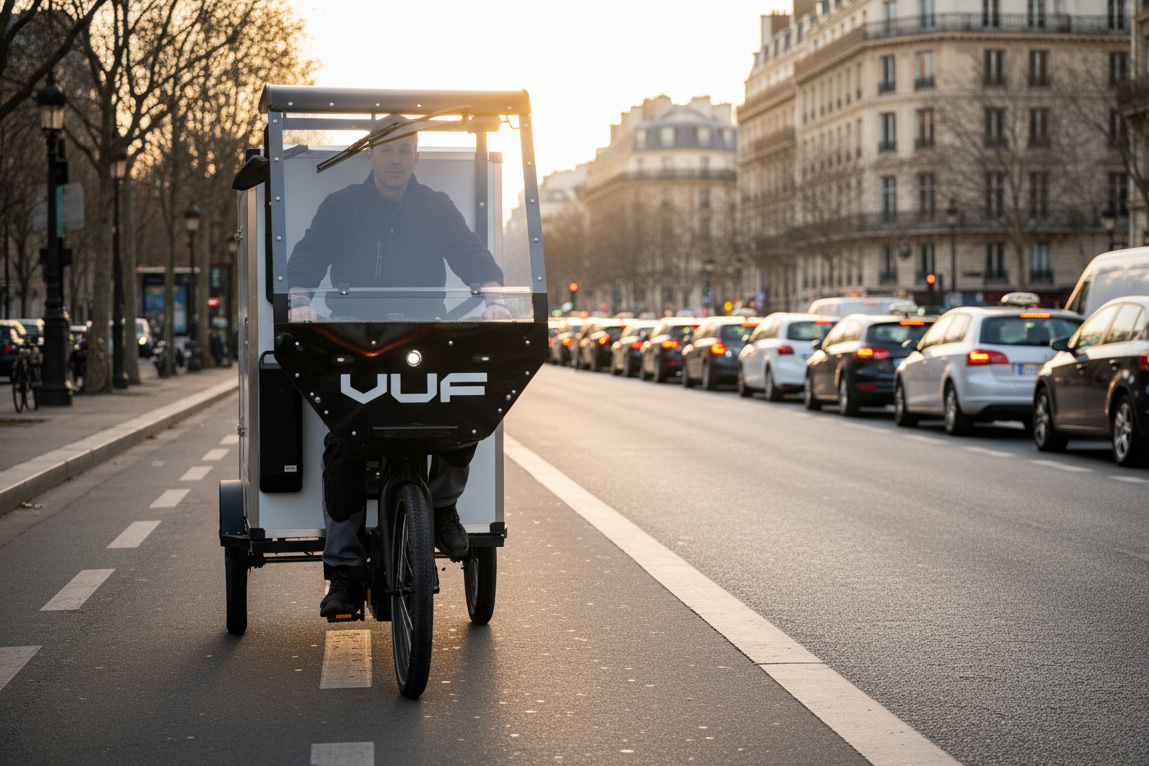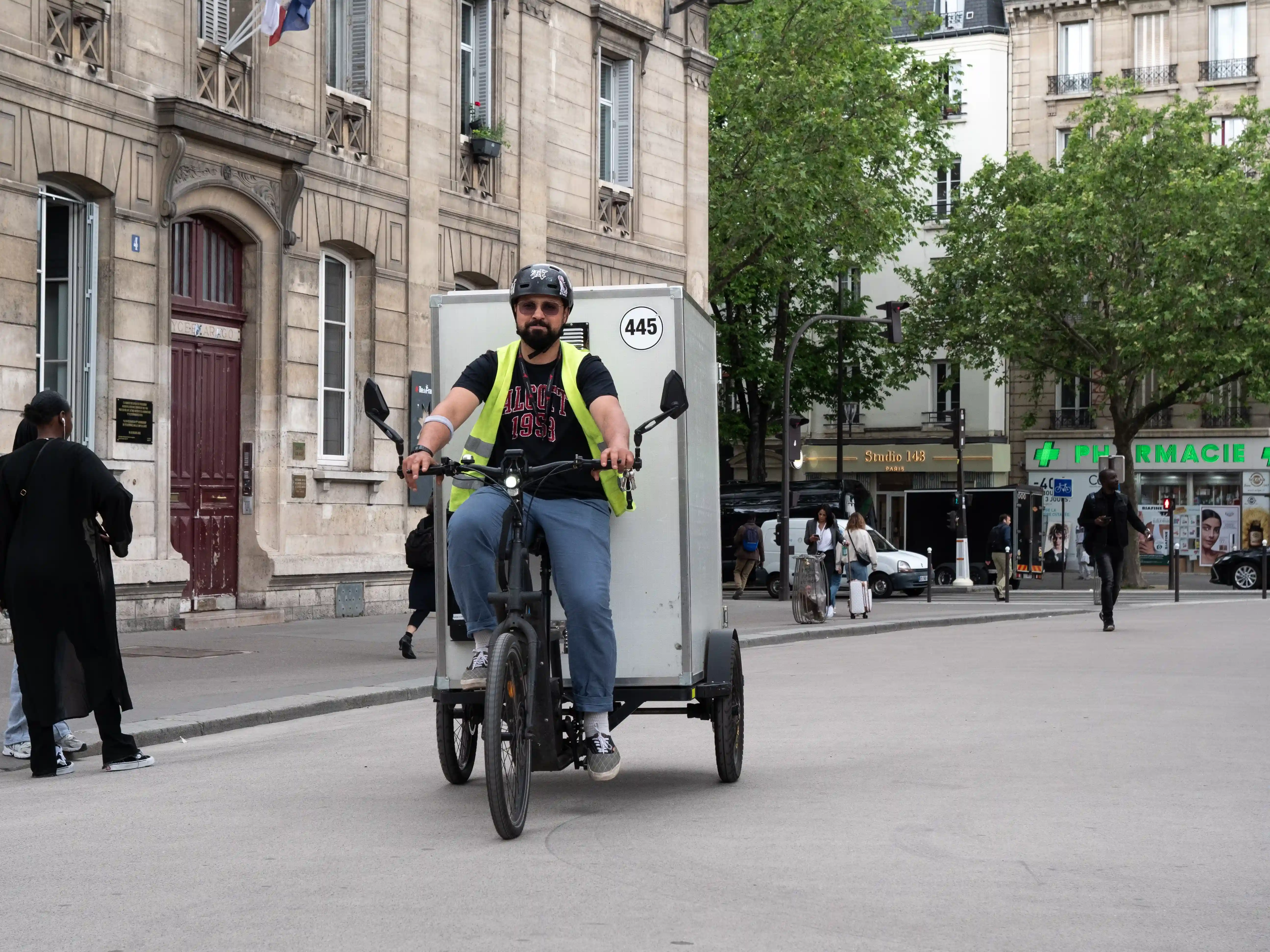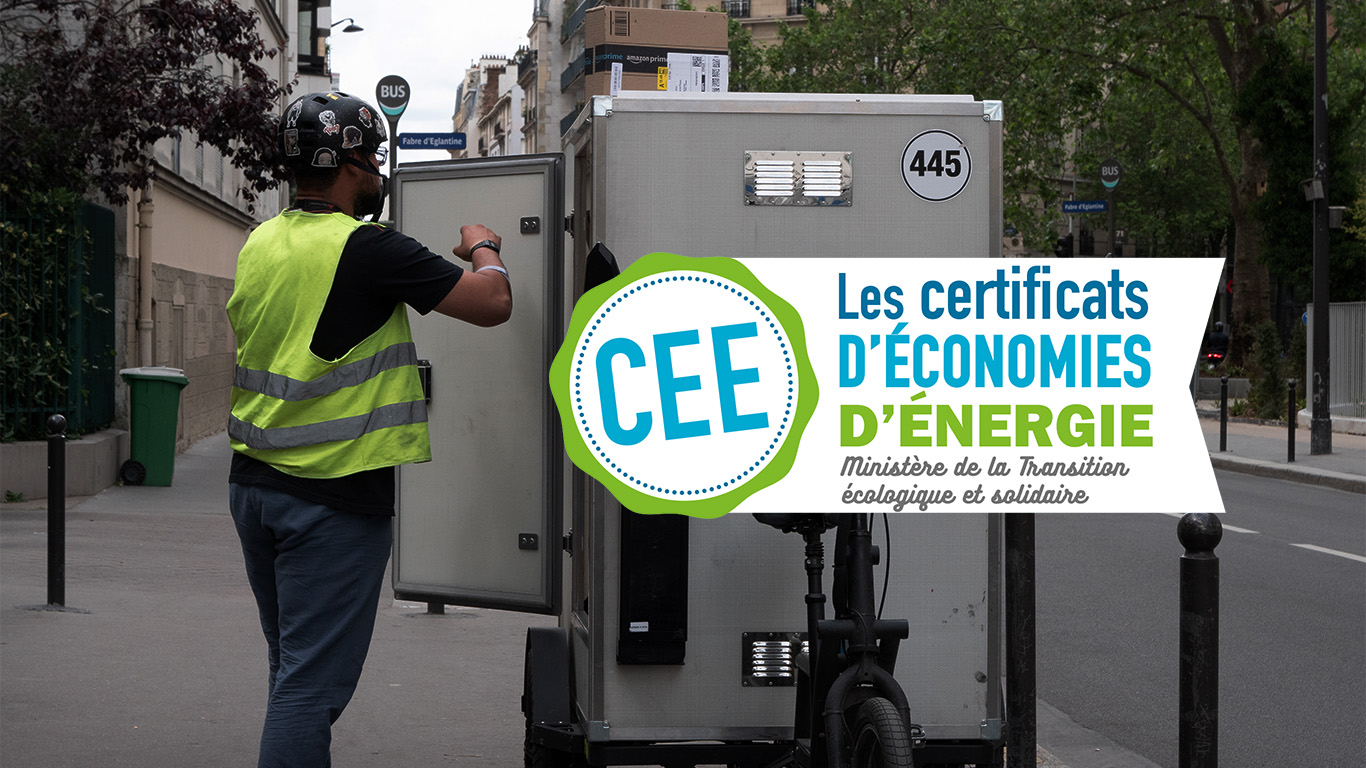
ZFE : Why Are Professional Cargo Bikes the Future?
E-trikes : the sustainable solution to meet LEZ requirements and reinvent urban logistics
Low Emission Zones: Where do we stand in 2024?
The government mandates the creation of Low Emission Zones (ZFE) in all agglomerations with more than 150,000 inhabitants by 2025 across France, forcing businesses and retailers to find alternative distribution solutions, particularly with a focus on sustainability and responsibility.
LEZs impose access restrictions based on the pollution level of vehicles, determined by Crit'Air stickers, a classification system for vehicles based on their emissions. The most polluting vehicles are therefore banned from entering LEZs or are subject to time restrictions. VUF Bikes' cargo tricycles are not subject to this regulation. They are considered Electric Assist Cargo Bikes (VCAE).

LEZs, a turning point for companies' CSR strategies
The introduction of LEZs is an additional lever to encourage companies to adopt more sustainable mobility strategies as part of their CSR policies. ZFEs force companies to rethink their vehicle fleets, favoring cleaner mobility solutions, such as electric tricycles. This aligns perfectly with CSR objectives, which aim to minimize the environmental impact of a company's activities.
Why choose professional cargo bikes for your mobility transition?
Compliance with regulations
E-trikes are particularly well-suited for last-mile delivery, often one of the most polluting segments of transportation. They allow for easier movement in city centers, avoid traffic jams, and reduce delivery times. Companies operating in or near LEZs must comply with traffic restrictions. A well-defined CSR strategy allows these changes to be anticipated by adopting compliant vehicles or opting for alternatives like cargo bikes. This avoids penalties and allows operations to continue without interruptions.
An effective CSR strategy
Consumers, employees, and investors are increasingly concerned about companies' commitments to sustainable development. ZFEs, as strict regulations, further highlight companies that do not take their environmental responsibility seriously. On the other hand, those that integrate ZFE requirements into their mobility strategy strengthen their brand image.
Preventing future costs
Companies that anticipate restrictions imposed by LEZs by investing in sustainable mobility solutions avoid potential costs associated with immobilizing their vehicles or fines for non-compliance.
Valuing environmental commitment
By adopting solutions that comply with LEZ requirements, such as cargo bikes, companies can position themselves as responsible and committed players in the ecological transition. This can attract environmentally-conscious customers and partners.
The benefits of VUF Bikes for your company's CSR challenges
VUF Bikes' e-trikes allow companies to reduce their dependence on thermal vehicles, thereby helping to lower CO2 emissions and meet climate commitments:
CO₂ Emissions and Air Pollution
- Thermal vehicle: About 460g of CO₂/km for a standard gasoline/diesel car. In addition to CO₂, thermal vehicles emit nitrogen oxides and fine particles, contributing to air pollution and public health issues.
- Electric cargo bike: Zero direct CO₂ emissions during use. Indirect emissions come from production and the electricity needed to recharge the battery, which can represent about 65g of CO₂/km.
Energy Consumption
- Thermal vehicle: Consumes fossil fuel, whose extraction, transport, and combustion significantly contribute to greenhouse gas emissions. A thermal vehicle consumes between 5 and 10 liters per 100 km, which equates to an energy expenditure of 500 to 1,000 kWh/100 km.
- Electric cargo bike: Very low energy consumption. An electric cargo bike uses about 1 to 2 kWh/100 km, which is negligible compared to a thermal car.
Production Impact
- Thermal vehicle: Manufacturing a thermal car involves significant consumption of resources (metals, plastic, etc.) and energy. The total life cycle can represent between 6 and 9 tons of CO₂, not including vehicle usage.
- Electric cargo bike: The environmental impact related to production is logically much lower than that of a car.
A bike adapted to all needs
VUF Bikes are designed to be modular, meaning they can be configured according to the specific needs of the company. Whether it's transporting parcels, equipment, or even people, the flexibility of these bikes allows them to meet a wide range of uses, optimizing logistics operations while remaining environmentally friendly. With a large capacity bike trailer, our motorized tricycles are as efficient as thermal vehicles.

Various uses of VUF Bikes
- Logistics, parcel, and mail delivery
- Green space and road maintenance
- Passenger transport
- Refrigerated and isothermal transport
- Maintenance and material transport
- Postal Services and Offices
Cost reduction
Opting for VUF Bikes cargo bikes allows companies to make significant savings. The maintenance and operating costs of electric bikes are much lower than those of thermal vehicles. These bikes help avoid the costs associated with ZFE restrictions, such as fines or investments in compliant vehicles.
At VUF Bikes, our after-sales service allows you to repair your bike at a very low cost and to order replacement parts quickly. A network of approved repairers is available throughout France for quick intervention. Find the map of repairers on our site.
The State also encourages this transition with a conversion bonus. A subsidy of up to €3,000 for the purchase of an electric assist cargo bike in exchange for scrapping a polluting vehicle. Find all the aids in your region on our page!

Discover for yourself all the advantages of our cargo bikes! Visit our website now to book a free trial or request your personalized quote.

.svg)

.svg)
.svg)


